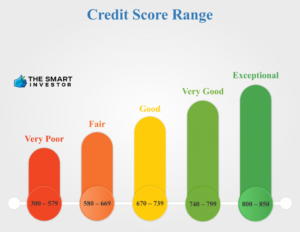
This is a guest post.
The author, Baruch Silvermann is founder of The Smart Investor (see bio below).
Buying a home can be a dream-come-true or a nightmare for first-time homebuyers – you can’t tell what to expect. There is a steep learning curve but fortunately, you can untangle most of the issues through a little financial groundwork.
To help you in your first-time home buying adventure, here are 4 great tips to help you navigate through the process and save some of your hard-earned cash.
Use an experienced realtor who knows the area and the market.
Your realtor is the key to a fantastic or horrific home buying experience. The moment you decide on the area you want to live in, try and get a local realtor referral. According to the 2018 figures of the National Association of Realtors (NAR), 87% of buyers purchased their homes through a real estate agent. So, begin asking friends, family or friends of friends who live in your target area to recommend someone. If that turns out to be a dead-end, try the real estate websites Streeteasy, Trulia and Zillow – they have a listing of local realtors.
A good realtor would know the area like the back of his hand, so this will save you a lot of time. More importantly, he or she will be able to listen to you and help you find what you are looking for. A good realtor will be by your side until the closing and if you’re lucky, even beyond that time.
A veteran realtor will have loan officers and real estate lawyers among his network of associates. He or she can also offer you street-smart tips as you go through the mortgage process such as having on hand a copy of a mortgage pre-approval letter from the lending bank. This shows the sellers that you are a serious prospect.
Check your credit score to see where you stand
Looking into your credit score is an important step to do before you even look for a lender. For lenders, your three-digit score is what helps them determine your risk level and eventually, what interest rate they can give you. Simply put, the higher your score, the better chance you’ll have of getting a loan and help you secure a lower interest rate.
For a small fee (usually around $20 per score), you can get your score from the three credit bureaus: TransUnion, Experian, and Equifax. It will be to your advantage to know your credit score before you buy your first home. You will have a clear picture of what kind of borrower you are, and how lenders will view you as a borrower.
A score of 600 or higher is very good because you’ll be in a good credit position to buy a house. Now, a score of 750 or higher is even better because it falls under the category of excellent. But if you have a score that’s below 600, you might find that it’s harder to qualify for a loan. The good news is, these numbers are never permanent. Nevertheless, it’s an important factor in your home-buying adventure.
Draw up a hard budget and stick to it
What if you find a house that fits everything you’ve ever wanted but the price is way outside what you can afford? That will be extremely disappointing. Before you start looking at houses, make sure you’ve settled one of the most important aspects of home buying. What is the maximum price you can comfortably afford? What price range would be most ideal according to your financial capacity? An online mortgage calculator is a great tool. You can find out the maximum monthly payment you can afford according to the price of the home after the down payment and over 30 years or your preferred number of years to repay your mortgage.
If you happen to like a house so much but the monthly payment plus the other fixed expenses are outside your affordability range, just move on and look for a suitable house.
You may ask your bank’s loan officer for help to determine a figure you can work with. He will be able to tell you the maximum amount the bank can lend you and at what interest rate. Sometimes, it will be much higher than what you can afford to spend on a home. Just use it get an idea of the most you can pay with sacrificing your family’s future.
Make a shortlist of your non-negotiables
Before you get yourself caught up into the home buying experience, first consider your lifestyle and values. What features of the house would enhance your everyday life? And what would do the opposite? Using them as the starting point, draw up a list of your non-negotiables for your future home: location, square footage, amenities, etc. This will also be valuable for your realtor.
It’s great knowing exactly what you want in your house but it’s not always easy to find a home that has all of them. Find out about your options by visiting open houses in the area and familiarizing yourself with the local market. Look at apartments that are both above and below your price to see how the features and location affect the prices.
About the author
Baruch Silvermann is a personal finance expert, investor for more than 15 years, digital marketer and founder of The Smart Investor. But above all, he is passionate about teaching people how to manage their money and helping millions on their journey to a better financial future.


Leave a Reply